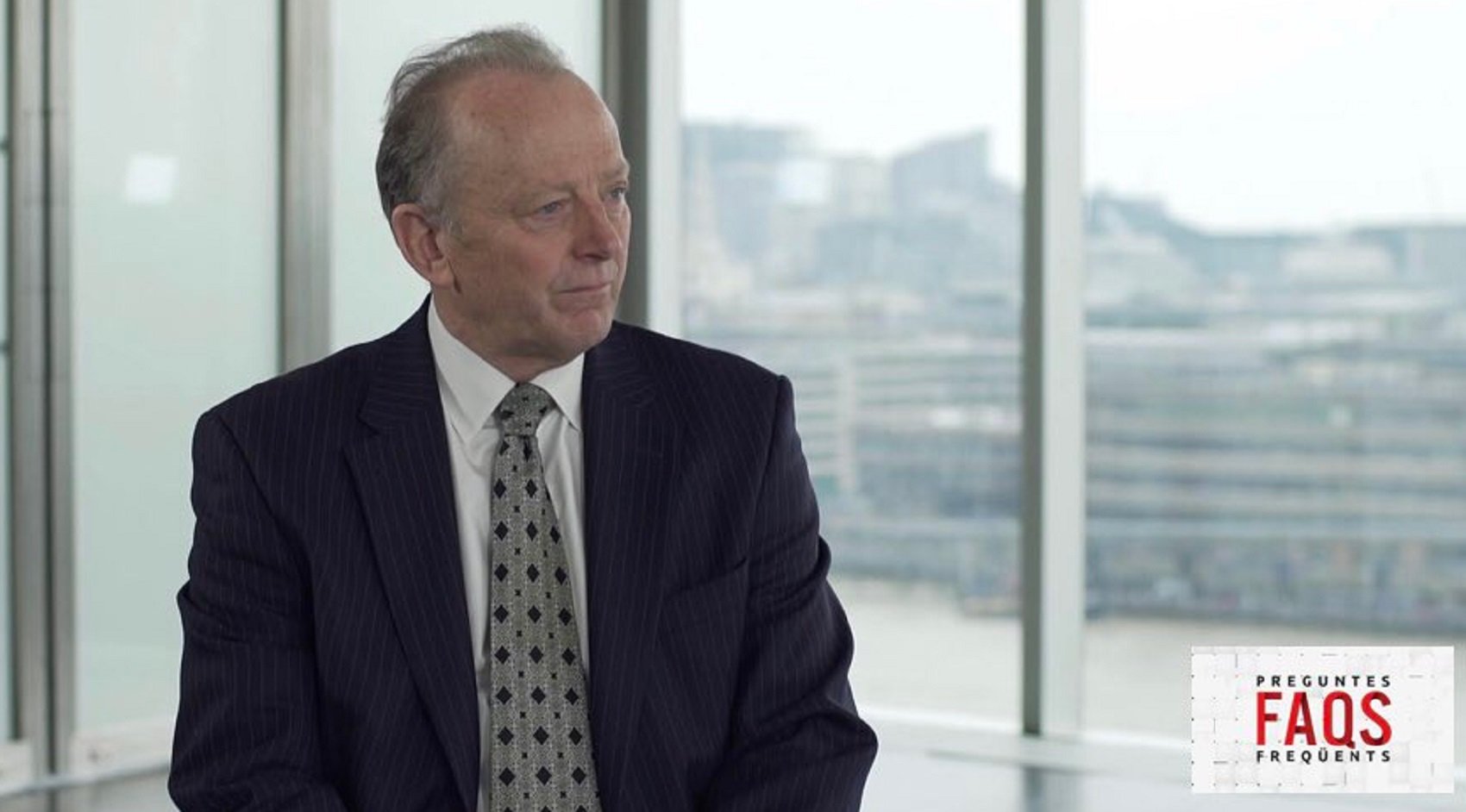"I am the author of an expert witness report in relation to the events of 20th September and 1st October 2017, whose broad conclusions find there was very little violence during either of those events." This was how former chief constable of the Police Service of Northern Ireland and Metropolitan Police public order specialist Sir Hugh Orde presented himself in an extensive interview on Saturday with Catalan public television's programme FAQs, the full English-language video of which has been made available.
Orde, along with former senior police colleague Duncan McCausland, was commissioned by Òmnium Cultural to write a report on two of the key events of autumn 2017 in Catalonia, a report which Spain's Supreme Court has refused to admit as evidence in the ongoing trial of independence leaders. "The report is independent. I was very clear that if there was any interference or attempts to influence us during the process, I would not write the report. I was slightly surprised when it wasn't accepted as evidence," he admits.
The two British officers, says Orde, were essentially asked to review all the evidence - watching hundreds of hours of video - relating to the events of those days "in relation to levels of violence, and the relationship between any violence and some particular individuals" - Jordi Sànchez and Jordi Cuixart, leaders of pro-independence civil groups who were later charged with rebellion, in particular in relation to the demonstration outside the Catalan economy ministry on September 20th.
In the half-hour interview, Orde speaks about the crowd on September 20th. "We were surprised that the crowd was peaceful" says Orde and added that "the crowd showed no intention of being violent or of any intent to commit a crime." "There was no throwing of objects or demonstrators with their faces covered," recalls Orde.
The former Scotland Yard officer also speaks of other elements that surprised him that day: an insufficient police presence if violence had been considered possible, and the fact that the Catalan Mossos police were unaware of the police operation in advance. "The police response to a violent crowd would have required a much larger team than had been prepared for this event," he says.
Orde also acknowledges that he was surprised by the number of journalists waiting when the judicial search began. "The only logical conclusion for the press being there was somebody had told them. You don't have photographers hanging around in the street at 8 o'clock in the morning unless someone had tipped them off," he stresses.
📌 Aquí teniu l'entrevista de #FAQScrispetesTV3 a Sir Hugh Orde en versió original 👇🏼https://t.co/9hp1ePfeaK
— Preguntes freqüents (@FAQSTV3) 14 d’abril de 2019
The "original version" of the full interview is available at the above link, or alternatively, HERE. It features Sir Hugh Orde's answers in English, with the interviewer's questions in unsubtitled Catalan.
In the second half of the FAQs interview, Orde speaks about his conclusions on the level of violence seen on the 1st October referendum day. "We saw a variety of police responses: from very professional at one extreme, through to situations where there was an excessive use of force - and that is to be condemned." "The police operation was doomed to fail, they were never going to close down all the voting centres with the number of officers available," said the former UK police leader, who estimated that around 90,000 police officers would have been needed to enforce the court order to prevent the referendum. Given that that number was many times more than the number available, Orde says the plan was "extraordinarily unrealistic."
Sir Hugh Orde says that the three police forces that operated on October 1st "did not appear to be operating in coordination". "The way that the police behaved, suggests they were confident that the public were not violent. They would remove people and then release them behind police lines, which you don't do if you think they'll attack you."
So, the interviewer asked, was there a rebellion in Catalonia on October 1st? "We saw a large number of citizens exercising their right to protest, in a peaceful way. With some small local exceptions, I saw no evidence of anything other than a large demonstration which, if I had been in charge, I would have been responsible for protecting and policing."

